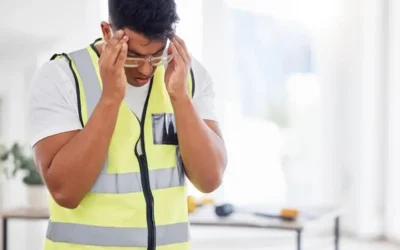UV protection is critical for your eyes because harmful ultraviolet rays can cause both short-term discomfort and long-term damage, such as cataracts, macular degeneration, and even photokeratitis, which is like a sunburn for your eyes. If you’re wondering why your eye care routine should include quality sunglasses and other protective measures, it’s all about shielding your eyes from damage that can impact your vision later in life. In this guide, we delve into how UV rays affect eye health, explore the best sunglasses and lenses available, offer practical sun safety tips, compare various UV protection technologies, and share recommendations from leading eye care professionals.
How UV Rays Affect Eye Health
Short-term and Long-term Eye Damage
Exposure to UV rays may result in immediate irritation, watering, and blurred vision. However, over time, repeated exposure leads to cumulative damage, heightening the risk of developing serious conditions such as cataracts, where the lens becomes clouded, or macular degeneration, which affects the central area of your vision. Think of it like slowly rusting metal; even when you can’t immediately see the harm, the damage is adding up over time.
Common Conditions Caused by UV Exposure
Some of the common eye conditions linked to UV exposure include:
- Cataracts: The clouding of your eye’s lens that can significantly impede vision.
- Macular Degeneration: The deterioration of the central retina, affecting your ability to see fine details clearly.
- Photokeratitis: Often referred to as a sunburn of the eyes, leading to temporary pain and discomfort.
Best Sunglasses and Lenses for Protection
Protective eyewear is a key component in preventing UV-related eye damage. When choosing sunglasses, quality matters just as much as style.
Top-Rated Sunglasses Technologies
Modern sunglasses utilize advanced technologies to offer both aesthetic appeal and crucial protection. Look for features such as:
- Polarization: Which reduces glare from surfaces like water or roads, making your vision clearer and less fatiguing.
- Full UV Coating: Ensure your lenses are rated to block 100% of UVA and UVB rays.
- Wraparound Designs: These help to block peripheral rays that might otherwise slip past standard frames.
Lens Materials and Coatings
Lens quality is essential. Materials like polycarbonate are both lightweight and impact-resistant, while modern coatings can repel water, dust, and scratches. High-quality lenses with multiple layers of protection ensure that even in extreme environments, your eyes remain shielded from harmful rays.
Tips for Sun Safety
Beyond wearing sunglasses, there are several everyday practices to keep your eyes safe from UV rays.
Practical Daily Sun Safety Tips
Consider these practical tips for everyday protection:
- Wear UV-Blocking Sunglasses Daily: Even on overcast days, as UV rays penetrate clouds.
- Use a Wide-Brimmed Hat: Which reduces the amount of stray sunlight that reaches your eyes.
- Plan Your Outdoor Activities: Avoid spending extended periods in direct sunlight during peak UV hours (10 AM to 4 PM).
- Monitor the UV Index: Stay informed about the day’s UV intensity and adjust your plans accordingly.
Additional Protective Measures
If you wear contact lenses, look for products with built-in UV protection. Also, consider pairing your eyewear with other sun-safe practices such as using UV-blocking window films in your car or at home, ensuring you get the protection you need in all settings.
Comparison of Different UV Protection Technologies
As technology evolves, so do the methods for protecting your eyes. Knowing the differences between available options can help you choose the best one for your lifestyle.
Polarized vs. Photochromic Lenses
Polarized lenses are excellent at reducing glare and are best for bright outdoor conditions, whereas photochromic lenses adapt to varying light conditions, making them a versatile choice for those frequently transitioning between indoor and outdoor environments. Both types have distinct advantages, so think about your usual activities when making a choice.
Modern Coating Technologies
Today’s lenses often feature advanced UV coatings that not only block harmful rays but also reduce eye strain and improve contrast. These innovations ensure your eyes receive maximum protection while maintaining optimal visual clarity. Manufacturers continue refining these technologies, making it easier than ever to protect your vision effectively.
Recommendations From Eye Care Professionals
Eye care experts consistently advocate diligent UV protection, emphasizing the role of regular, high-quality sunglasses in an overall eye care regimen.
Expert Advice and Frequently Recommended Products
Eye care professionals suggest always choosing sunglasses that explicitly state 100% UV protection. They recommend:
- Verification of Labels: Always verify that your sunglasses meet the UV-blocking standards.
- Wraparound Styles: These offer the best defense against peripheral light exposure.
- Prescription Options with UV Coating: For those who need corrective lenses, many brands offer solutions that combine vision correction with UV protection.
When to Seek Professional Help
If you experience persistent discomfort, notice changes in your vision, or see unusual spots and colors, it’s important to consult an eye care professional immediately. Early detection of UV-induced damage can prevent irreversible harm and support better long-term eye health.
Conclusion
In conclusion, UV protection is critical for your eyes because it helps prevent both immediate discomfort and long-term damage from harmful ultraviolet rays. By understanding the risks associated with UV exposure and opting for quality protective measures such as sunglasses with advanced technologies and daily sun safety routines, you can keep your vision clear and healthy. Remember, investing in your eye health today can save you from costly and painful treatments in the future. Protect your eyes, protect your vision.
FAQ: Your questions answered
Why is UV protection essential for eye health?
It prevents both short-term irritation and long-term eye damage like cataracts and macular degeneration, safeguarding your vision against harmful UV rays.
Do I really need to wear sunglasses on cloudy days?
Yes, because UV rays can penetrate clouds, exposing your eyes to potential damage even on overcast days.
What should I look for in quality sunglasses?
Look for sunglasses that block 100% of UVA and UVB rays, feature polarized or photochromic lenses, and ideally have a wraparound design for enhanced protection.
Can contact lenses provide sufficient UV protection?
Many contact lenses now incorporate UV-blocking properties; however, they should be worn in conjunction with sunglasses for full protection.
When should I seek professional advice regarding UV damage?
If you notice persistent eye discomfort, changes in vision, or other symptoms that might indicate UV-induced damage, consult an eye care professional promptly.



